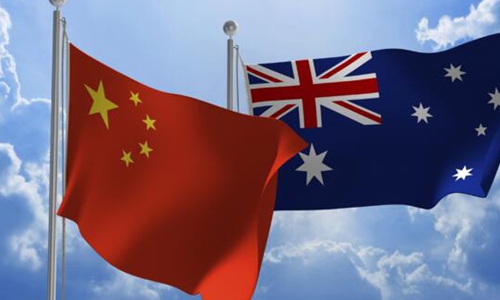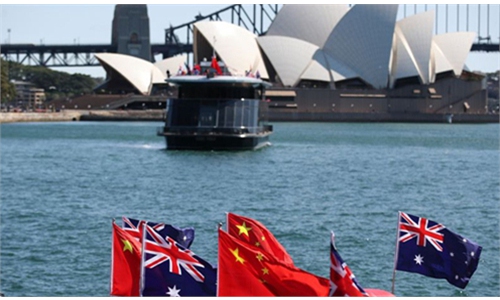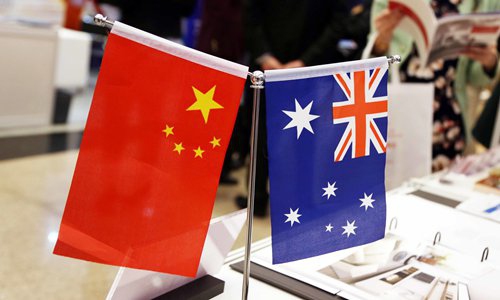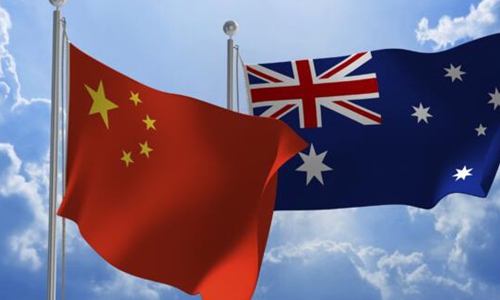
File photo
The US Department of Commerce on Friday added 33 Chinese companies and institutions to an economic sanctions blacklist, a clear signal that the US intends to intensify efforts to decouple from China.The move comes as China-US relations are worsening over a wide range of issues such as the coronavirus, economic decoupling and Hong Kong. While China has been trying to avoid escalating its tension with the US, such restraint on its part has not prevented bilateral relations from sliding to the lowest point in decades. On Sunday, Chinese State Councilor and Foreign Minister Wang Yi said that political forces in the US are taking US-China relations hostage and pushing the two countries to the brink of a "new Cold War."
If the Trump administration plunges the world into a "new Cold War," forcing China to take countermeasures against the US and its allies, it would be extremely dangerous for Canberra to become a player in a diplomatic club led by the US, given Australia's high dependence on the Chinese economy.
Once Australia is regarded as a supporter of the US in a "new Cold War," China-Australia economic ties will inevitably suffer a fatal blow. This is why Canberra needs to closely watch Washington's attacks which include placing Chinese firms on its sanctions backlist. This offers Canberra a window to observe whether there will be a "new Cold War" between China and the US and to reconsider its strategic relations with Washington.
The latest blacklisting makes clear that the US will not give up on decoupling from China. Whether it is because of the unprecedented coronavirus shocks to its economy or the upcoming elections, the Trump administration seems bound to continue its standoff against China, which is likely to be escalated into antagonism.
During this process, the US may try to keep some of its allies on its side to increase geopolitical pressure on China. From China's point of view, Australia, with its geopolitical and ideological grievances against China, appears to be one of the first to jump onto America's China-bashing bandwagon. However, it is uncertain whether the Morrison government intends to support the US on individual issues or if it is deliberately seeking to join the US in its confrontation against China. It seems that Australia is caught in the middle due to its political inclination toward the US and its economic connections with China.
We could never have imagined that US President Donald Trump would say something like "We could cut off the whole relationship." At the outset, perhaps Canberra could not have anticipated to what extent Trump would allow US-China relations to deteriorate. If Australia does not want to be a victim of the US-China standoff, it should reflect on whether it wishes to continue advancing toward the conflict.
If Trump continues to escalate the tension to a more serious level, China may have to impose countermeasures on the US and its supporters. Australia's economic deterrent force is much smaller than the US', so China to some extent will enjoy more room to fight back against Australia with countermeasures if Canberra supports Washington in a possible "new Cold War." It means Australia may feel more pain than the US.
Some countries may choose to take a wait-and-see approach toward the worsening US-China tensions instead of picking sides to further complicate the situation. For instance, despite the border disputes with China, the Modi government has shown considerable caution in commenting on issues involved in the US-China standoff. The Trump administration is fomenting trouble to deflect its woes over its mishandling of the coronavirus onto China. There is no need for other countries, such as Australia, to involve themselves in this ridiculous political play.
On the Chinese side, we don't want to identify each country's circle of friends, but if some nations work with the US to smear or blackmail China, it will be normal to see China fight back.



